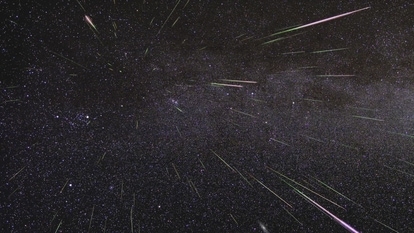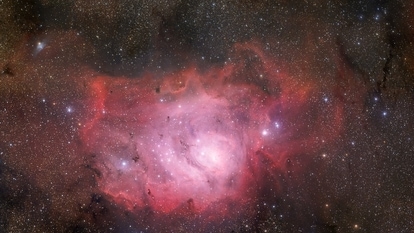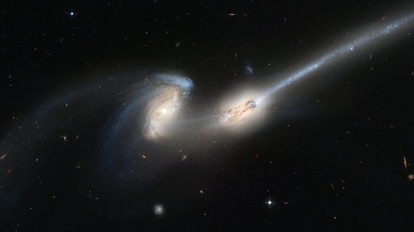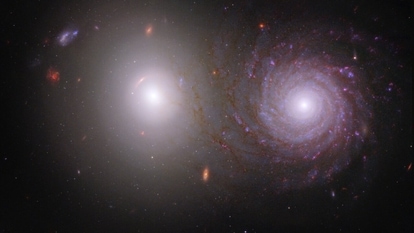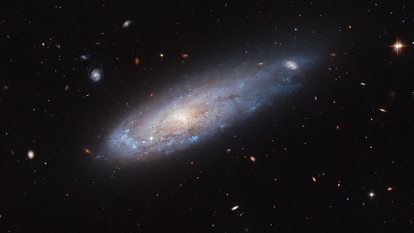Earth and the entire solar system can Collapse if THIS happens to Neptune
Neptune, the farthest planet in the solar system, can cause the entire solar system including Earth to be destroyed if it gets pulled in by a passing star. But how can that happen? Find out.
_1657179150950_1657179165475.jpg)
Our solar system is a perfectly balanced cosmic entity that supports our Sun eight planets and a dwarf planet, Pluto. However, this gravitationally stable system has been able to stay this way because different planets play significant roles in keeping it that way. For example Jupiter, the largest planet protects the inner ring from asteroids and meteors and Mercury rotates at such a high speed that consistently defies the gravitational pull of the Sun to keep it in its orbit. But the planet that can affect the solar system the most is the farthest planet, Neptune. And it is not because its gravitational pull influences the other planets, but because it is the most vulnerable planet in this system.
A passing star can seal the fate of Neptune
Now, if Neptune were to suddenly disappear from our solar system, not much would have changed. Pluto would probably face an altered orbit and Uranus might shift its orbit a little closer towards Saturn but the rest of the planets are way far away to even notice the disappearance. Even on Earth, probably the only people who would notice this would be NASA astronomers and other scientists studying it since Neptune is the only planet not visible to the naked eye.
However, if circumstances were a little different, Neptune's disappearance could push the entire solar system into chaos. The solar system is not an isolated structure. It is part of the Milky Way galaxy which is filled with stars, planets, black holes, asteroids, meteors, gasses and dust. And all of it is in constant motion. So, in a hypothetical situation, if our solar system came across another star, Neptune would be the first to know about it. According to a report by New Scientist, if the star were to pull Neptune out of its orbit, the snowball effect can cause major instability in our solar system.
Neptune might be the first to shift but given how powerful the gravitational pull of a star is, its impact will be felt right to the core of the Sun. And when every planet moves and shifts its orbit, the entire solar system's stability gets wrecked. What makes this truly terrifying are two considerations. First, the passing star does not need to be as large as the Sun to cause this chaos. And second, we might not even be able to see it coming since the star would not need to come too close to the solar system either.
Catch all the Latest Tech News, Mobile News, Laptop News, Gaming news, Wearables News , How To News, also keep up with us on Whatsapp channel,Twitter, Facebook, Google News, and Instagram. For our latest videos, subscribe to our YouTube channel.





